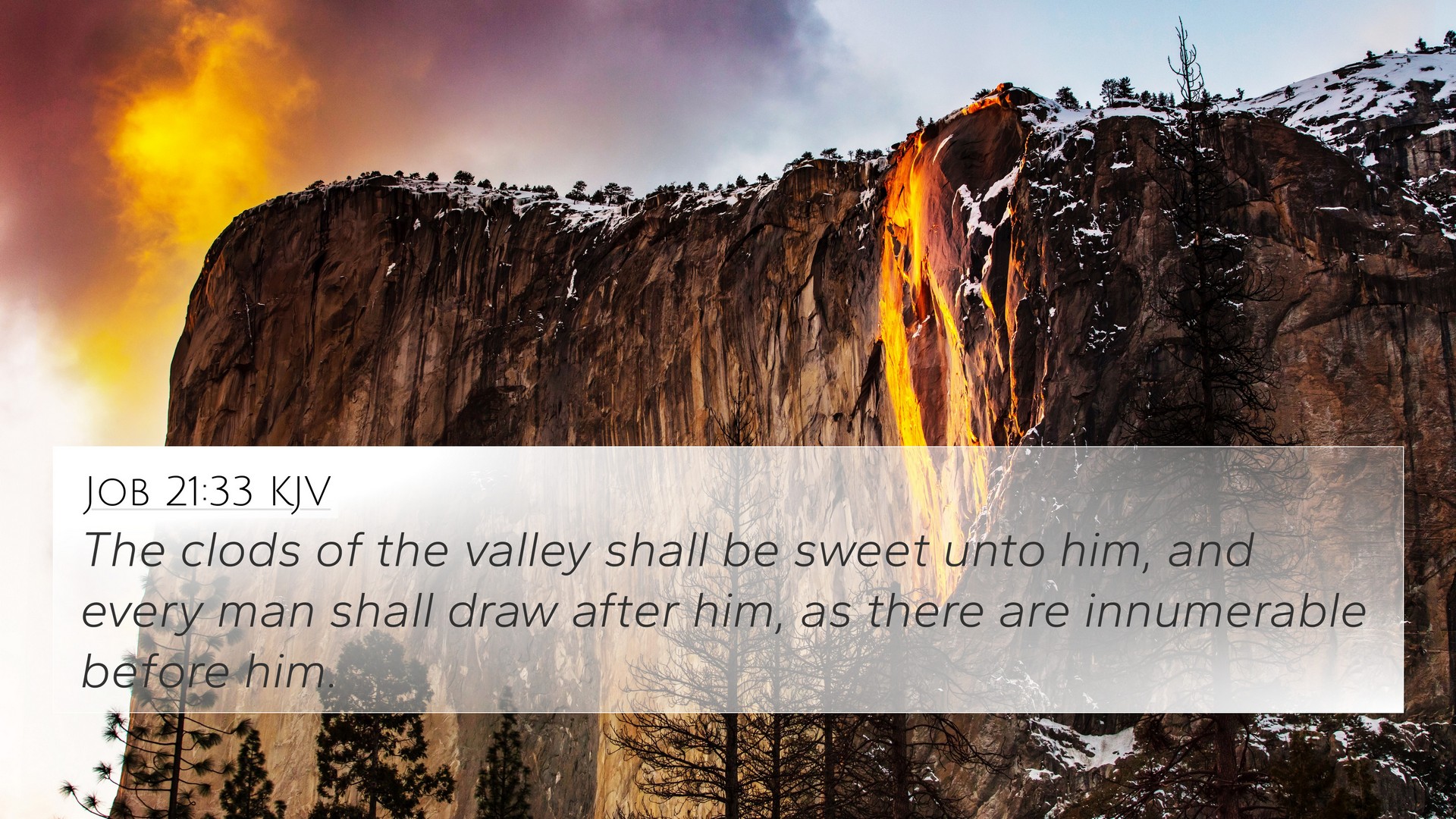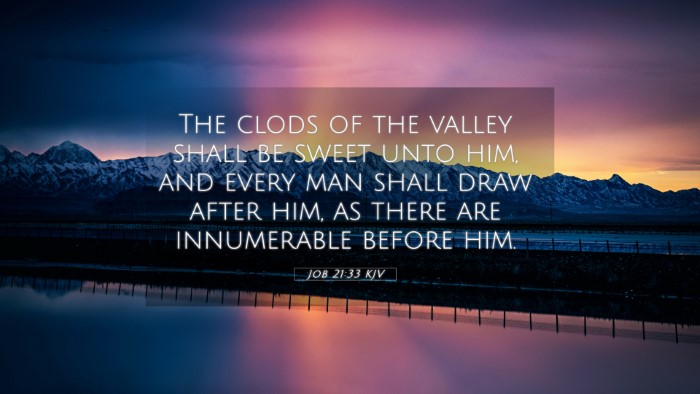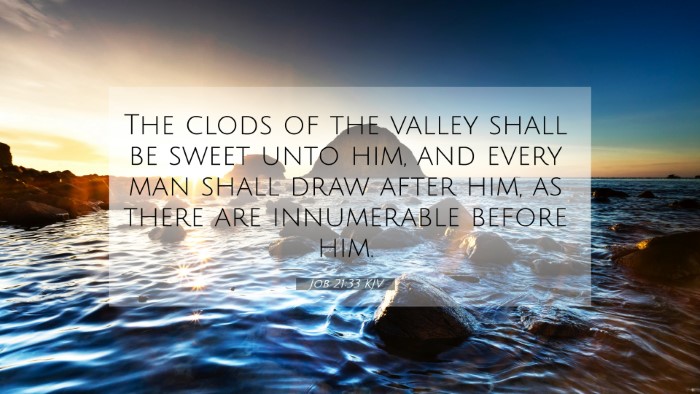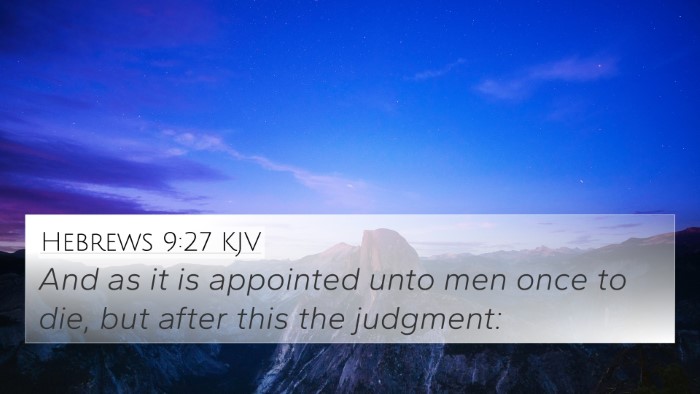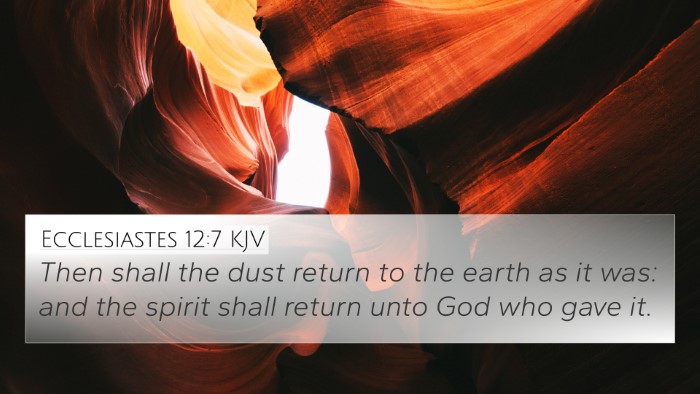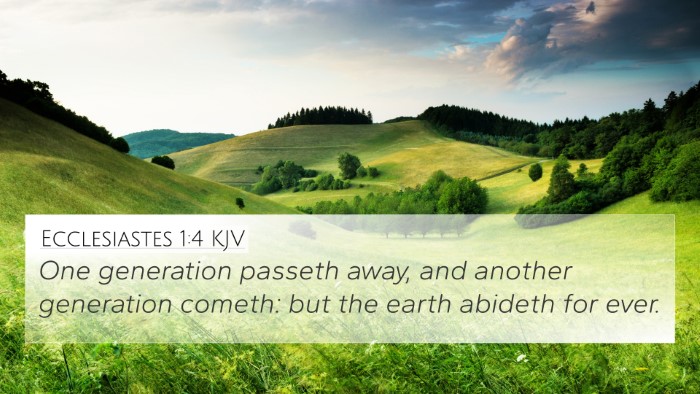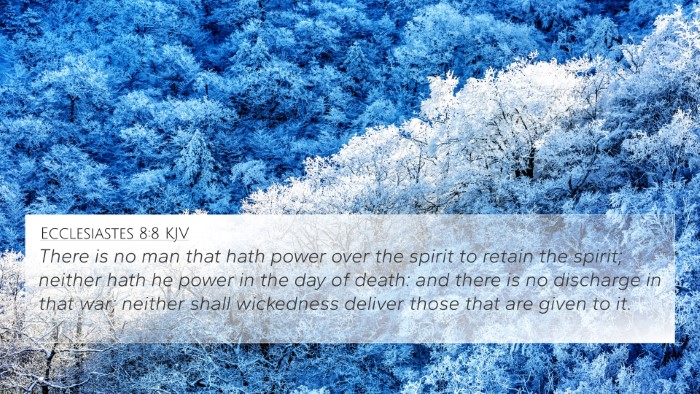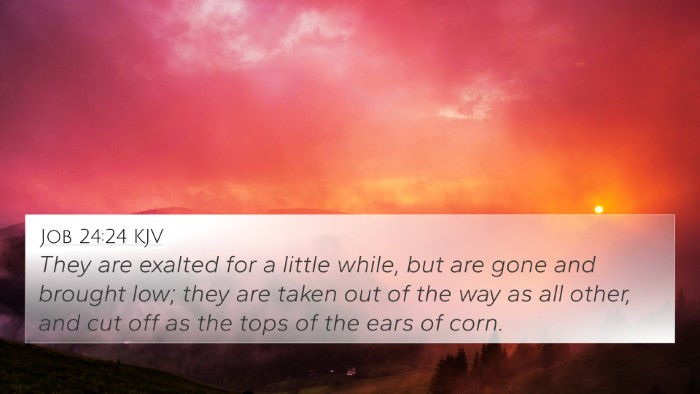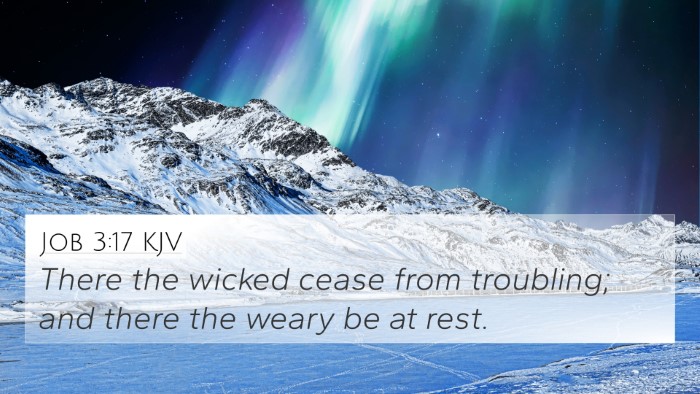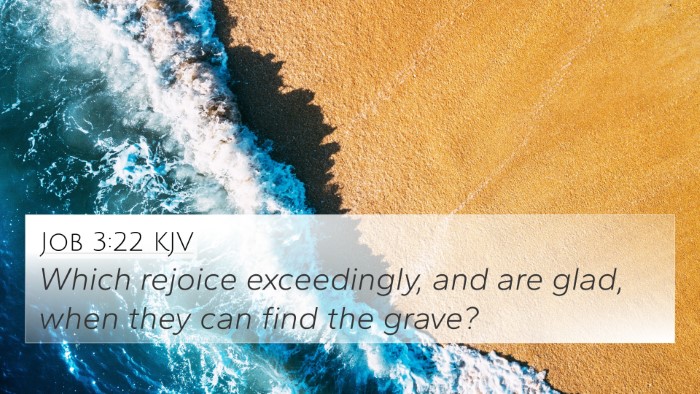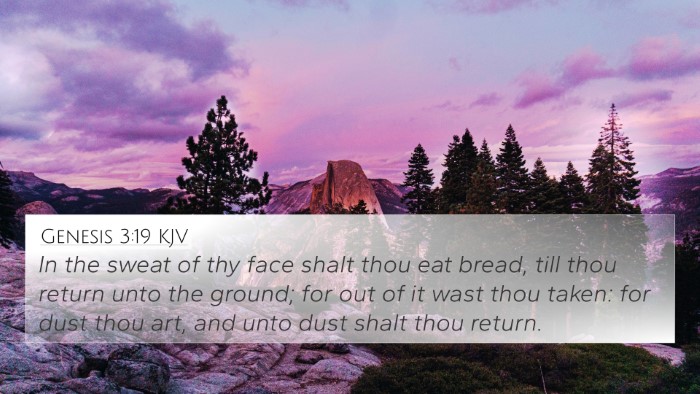Understanding Job 21:33
Job 21:33 states: "The clods of the valley shall be sweet unto him, and every man shall draw after him, as there are innumerable before him." This verse delves into the themes of mortality, justice, and the transient nature of life.
The expression "clods of the valley" suggests a return to the earth, a reference to death and burial. Job contrasts the fate of the wicked with that of the righteous, expressing a profound perspective on the apparent prosperity of the wicked. The commentary from Matthew Henry points out that this verse encapsulates Job's argument about the unjust nature of how prosperity is often granted to the wicked.
Albert Barnes notes that this verse illustrates the end of a man who lived in wickedness; he typically meets his demise comfortably, suggesting a deceptive ease in worldly life even when fraught with immorality. The mention of "every man shall draw after him" indicates the inevitability of death, which captivates all alike, regardless of one’s moral standing in life.
Adam Clarke interprets this verse to mean that death is the common conclusion for every person, highlighting that the ultimate fate is the same, irrespective of how one lived. Clarke emphasizes that the transient nature of life aligns with the way life appears unfair, especially when juxtaposed against divine justice.
Key Themes in Job 21:33
- Mortal Equality: The verse emphasizes that death is the great equalizer, a theme echoed throughout scripture.
- Questioning Justice: Job grapples with the observation that often, the wicked seem to prosper while the righteous suffer.
- The Nature of Comfort: The "sweetness" of the clods denotes an irony in death as a peaceful closure in the face of unfulfilled justice in life.
Bible Cross References for Job 21:33
Here are several scriptures that connect and provide deeper insight into the themes present in Job 21:33:
- Ecclesiastes 3:20-21: "All go to one place; all are from the dust, and to dust all return." - This reflects the inevitability of death.
- Psalms 49:12: "Nevertheless, man being in honor abideth not: he is like the beasts that perish." - Another testament to the fate of mortal beings.
- Proverbs 14:32: "The wicked is driven away in his wickedness: but the righteous hath hope in his death." - Contrasting outcomes based on righteousness.
- Isaiah 57:1: "The righteous perisheth, and no man layeth it to heart: and merciful men are taken away, none considering that the righteous is taken away from the evil to come." - Further exploration of perceptions around justice.
- James 4:14: "For what is your life? It is even a vapor, that appeareth for a little time, and then vanisheth away." - Emphasizing the transient nature of life.
- Revelation 20:14: "And death and hell were cast into the lake of fire. This is the second death." - The ultimate fate awaiting all, reinforcing the notion of mortality.
- Matthew 5:45: "That ye may be the children of your Father which is in heaven: for he maketh his sun to rise on the evil and on the good..." - Signifying the common grace of life experienced by the wicked.
Connecting Themes Across the Bible
Job 21:33 reflects broader themes in the Bible regarding the nature of justice, the inevitability of death, and the perplexity of earthly life. These themes find echoes in both the Old and New Testaments, creating an inter-Biblical dialogue that enriches understanding.
The Role of Cross-Referencing Biblical Texts
Utilizing a Bible cross-reference guide allows believers and scholars to see connections between verses, enhancing comprehension and interpretation. When studying Job 21:33, consider how the surrounding scriptures relate to themes of justice, mortality, and the human condition.
Conclusion
In conclusion, Job 21:33 provides profound insights into the human experience, challenging readers to reflect on the nature of life and death, as well as the apparent disparities of justice. Cross-referencing related scriptures strengthens the understanding of these themes and promotes a deeper engagement with the Holy Scriptures.
